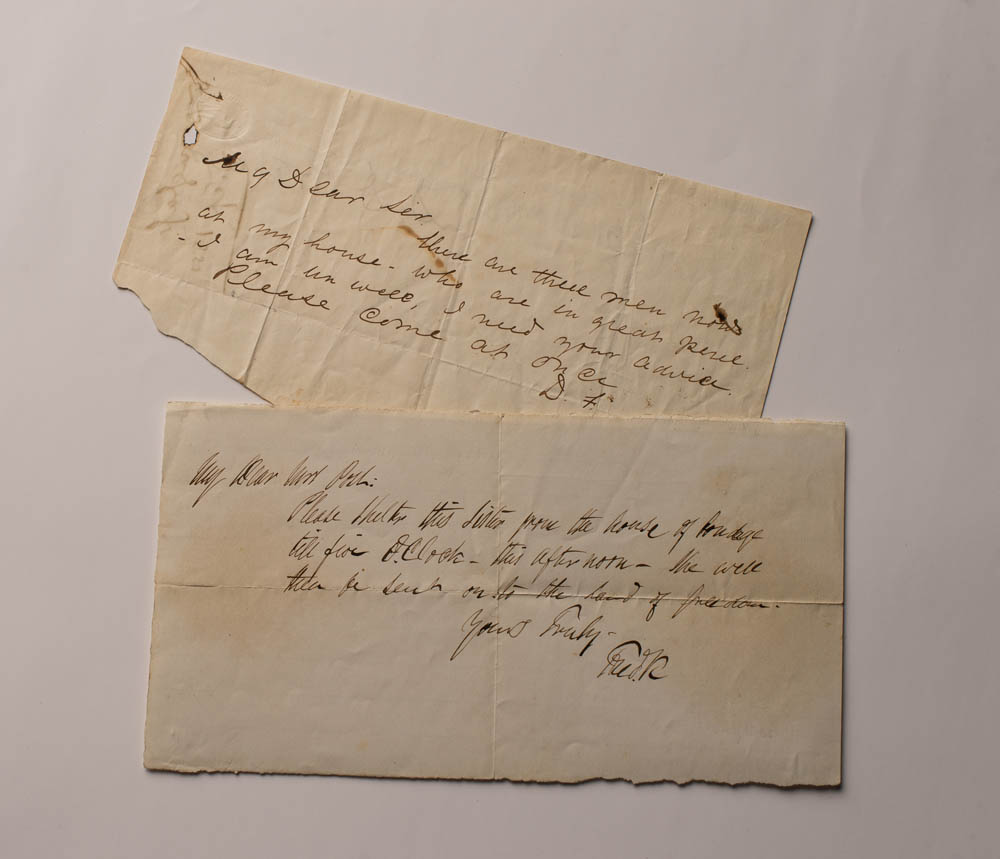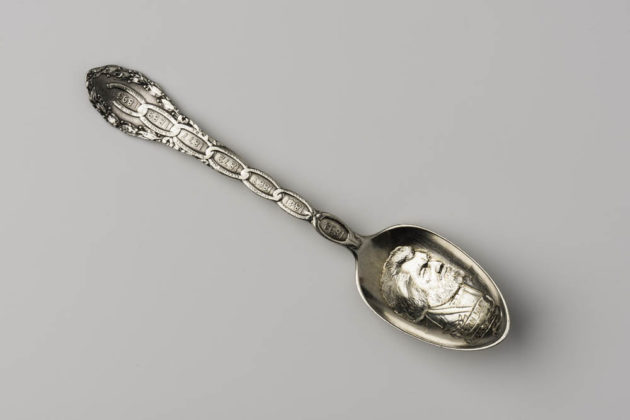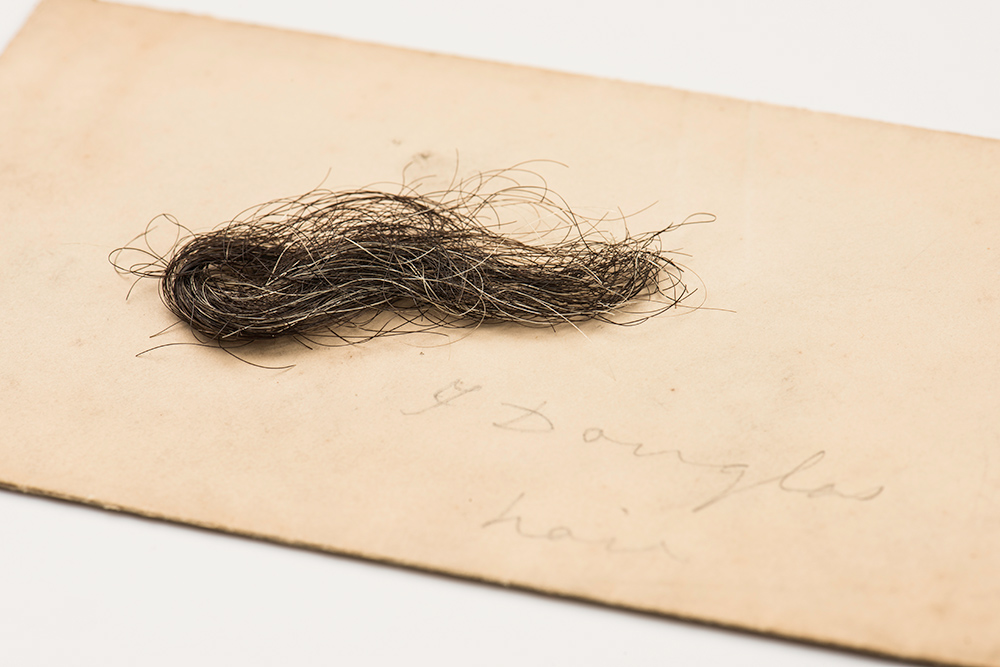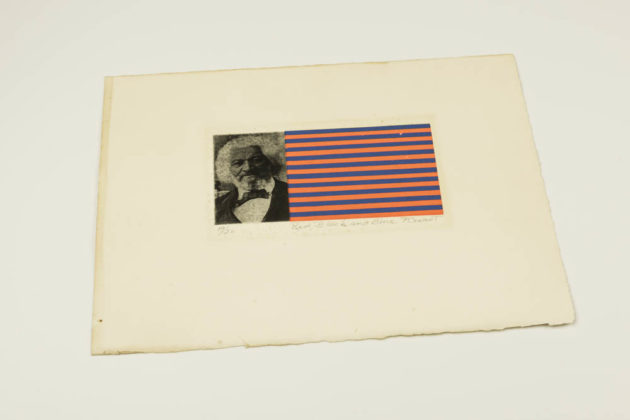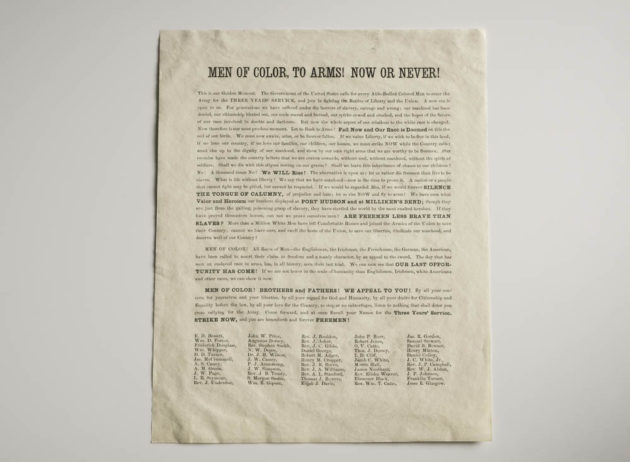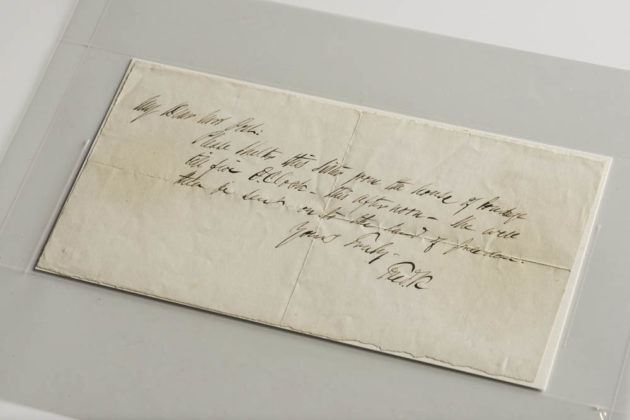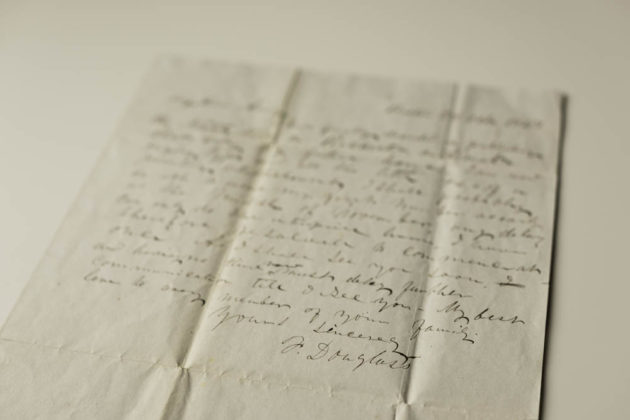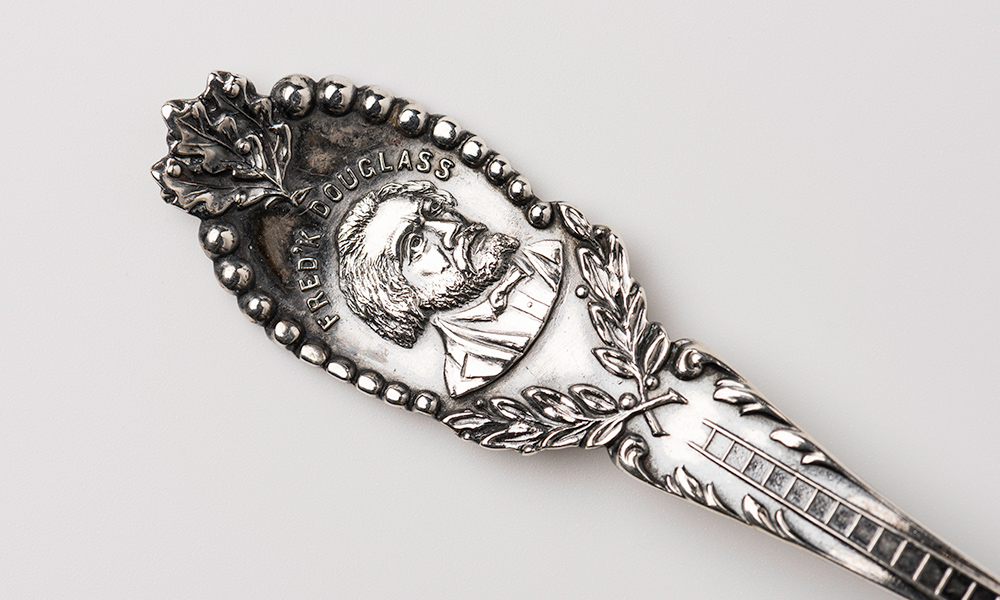This year marks the 200th birthday of the abolitionist leader Frederick Douglass, who spent his most active years in Rochester, publishing the North Star newspaper in a second-story office in the Talman Building downtown.
One of the most extensive collections of Douglass artifacts can be found at the University of Rochester in the Rush Rhees Library’s Department of Rare Books, Special Collections and Preservation. The collection comes from multiple sources, with the largest cache—more than 100 letters—traced to the papers of Isaac and Amy Post, two Rochester abolitionists and friends of Douglass.
Included in the collection are photographs, newspapers, ephemera, books, and a large array of letters written by Douglass that span several decades, notes Jessica Lacher-Feldman, assistant dean and the Joseph N. Lambert and Harold B. Schleifer Director of Rare Books, Special Collections and Preservation at Rush Rhees. “Most remarkable are his letters that are part of the Isaac and Amy Post Papers, which shed light on his decades-long friendship and collaboration with this radical activist family in Rochester,” she says.
Along with the many letters in the collection are samples of Douglass’s speeches, the North Star newspaper, a lock of his hair, and memorabilia commemorating his death.
“The Post papers and other Douglass letters have been digitized and are freely available online,” says Lacher-Feldman. “We are working to revise and update our Frederick Douglass digital presence as part of the celebration of the 200th anniversary of his birth.”
Douglass spent 25 years in Rochester and is buried in Mount Hope Cemetery, adjacent to the University’s River Campus.
Like most African Americans born into slavery, Douglass was never told the date of his birth. He chose February 14 as the day on which to celebrate it.
From the collections
